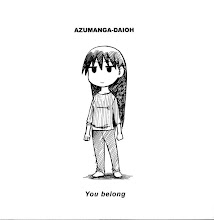The Otaku Encyclopedia by Patrick W. Galbraith, published 2009 through Kodansha, is a detailed encyclopedia of terminology on many things 'otaku'. It also includes some historical overview and a handful of interviews with various 'experts'. The book is in English and a trim 248 pages with plenty of photographs.
From A to Z detailed many aspects of modern otaku cultures with some background/historical information for the less initiated. The book focuses primarily on manga and anime otaku but touches on other otaku genres such as figure and train otaku. Galbraith interviews a handful of people and includes these interviews to expand upon related term entries. Among the interviewees are; Okada Toshio (Gainax's first president), Murakami Takashi (otaku pop-artist), Ishikawa Koichi (an organizer for Comiket) and Yamamoto Yutaka (director for Kyoto Animation). With his passion for the worlds of otaku, Galbraith delves deep into the things surrounding them, such as the origins of Akiba and Yaoi. At times his fandom over powers journalism and unbiased documenting. He leans heavily on the oppression and social outcast aspects of otaku historically, trying to counter negative images from high profile 'otaku' murderers. He also goes to great lengths to defend levels of enthusiasm and fandom that may be considered dangerous.
Even with its obvious lean towards countering vilification of otaku, it is in depth and informative. While I wouldn't recommend sitting down and literally reading it from cover to cover (which is exactly what I did) it is a worthwhile addition to any otaku library. Regardless of how well versed you are in the world of otaku this book will have enough new information for you to be worth the time and money. It is also a great resource for additional reading through its lengthy bibliography...which is part of the reason the book took me so long to go through, I continued to get sidetracked into reading related material over the course. As someone deeply interested in the historicity of otaku and anime this book opened me up to some interesting insights and topics I was only peripherally aware of. Read the book with a skeptical mind though, given the authors unabashed pride and otaku self proclamation.
Fun Fact: Akiba comes from a long lasting, localized, mispronunciation of Akihabara which turned into local slang and was made famous by otaku adopting it in recent years.
From A to Z detailed many aspects of modern otaku cultures with some background/historical information for the less initiated. The book focuses primarily on manga and anime otaku but touches on other otaku genres such as figure and train otaku. Galbraith interviews a handful of people and includes these interviews to expand upon related term entries. Among the interviewees are; Okada Toshio (Gainax's first president), Murakami Takashi (otaku pop-artist), Ishikawa Koichi (an organizer for Comiket) and Yamamoto Yutaka (director for Kyoto Animation). With his passion for the worlds of otaku, Galbraith delves deep into the things surrounding them, such as the origins of Akiba and Yaoi. At times his fandom over powers journalism and unbiased documenting. He leans heavily on the oppression and social outcast aspects of otaku historically, trying to counter negative images from high profile 'otaku' murderers. He also goes to great lengths to defend levels of enthusiasm and fandom that may be considered dangerous.
(Patrick Galbraith cosplaying as Goku)
Even with its obvious lean towards countering vilification of otaku, it is in depth and informative. While I wouldn't recommend sitting down and literally reading it from cover to cover (which is exactly what I did) it is a worthwhile addition to any otaku library. Regardless of how well versed you are in the world of otaku this book will have enough new information for you to be worth the time and money. It is also a great resource for additional reading through its lengthy bibliography...which is part of the reason the book took me so long to go through, I continued to get sidetracked into reading related material over the course. As someone deeply interested in the historicity of otaku and anime this book opened me up to some interesting insights and topics I was only peripherally aware of. Read the book with a skeptical mind though, given the authors unabashed pride and otaku self proclamation.
Fun Fact: Akiba comes from a long lasting, localized, mispronunciation of Akihabara which turned into local slang and was made famous by otaku adopting it in recent years.








No comments:
Post a Comment